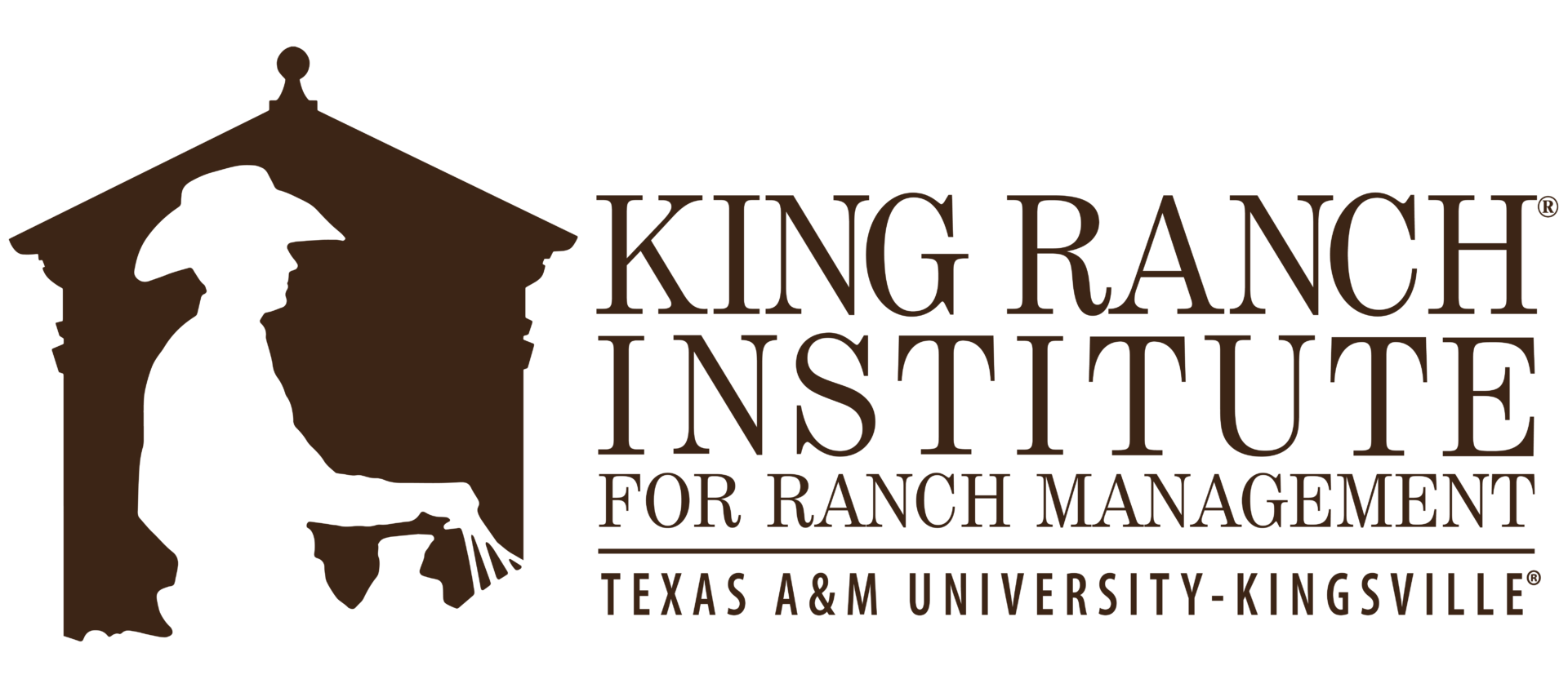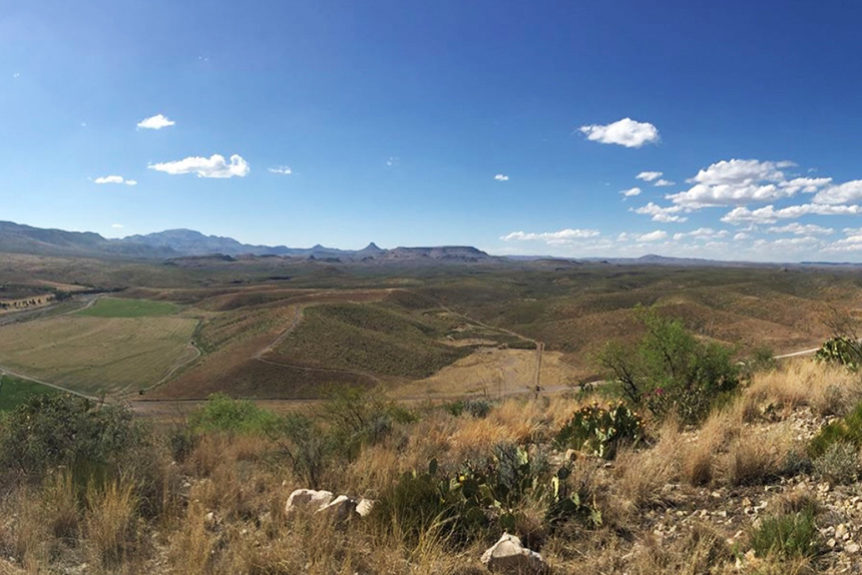KRIRM grad Tom Davis is leading the charge to bring cattle back to Cibolo Creek Ranch
By Kindra Gordon, appearing in the Spring 2020 KRIRM Newsletter
“Begin with the end in mind.” That is one of the basic tenets author Stephen Covey emphasizes in his best-selling book The 7 Habits of Highly Effective People – and it is a principle Tom Davis has focused on applying in life.
Raised on a family ranch northwest of Fort Worth, Texas, Davis’s “end goal” has always been ranching, which led him to pursue an array of experiences to broaden his perspective and ranch management skills – including attending the King Ranch® Institute for Ranch Management and graduating from the program in 2016. Ultimately, his circuitous path has brought Davis to a goal he set years ago.
He explains, “Building a ranch in the Big Bend area of West Texas has been my goal….the mountains get in your blood.”
In 2018, Davis achieved that goal when he became ranch manager for Cibolo Creek Ranch sprawling across 30,000 acres amidst desert, prairie grass, and the Chinati and Cienega Mountains near scenic Marfa, Texas. In this role, Davis once again found himself beginning with the end in mind since Cibolo Creek Ranch, a historic ranch acquired by Texas businessman John Poindexter in the late 1980’s, was being operated for wildlife and resort services and had little existing infrastructure of fencing or water development adequate for cattle –no pens, barns, or cattle.
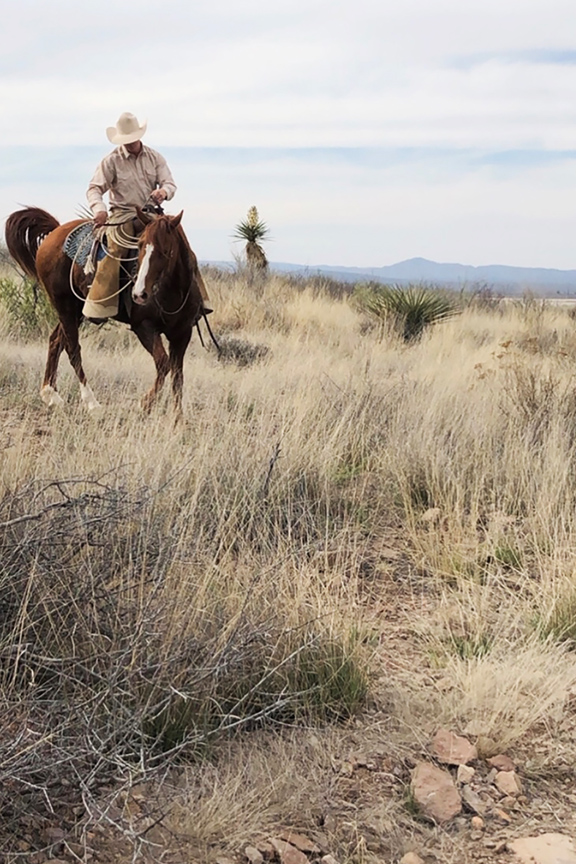
“You have to take a macro view and work backwards,” says Davis of the exciting and historic opportunity he was presented.
Ready for the Challenge
Davis’s extensive background prepared him for this cattle start-up venture. Growing up he was influenced by his grandfather operating a successful dairy. Eventually, Davis and his parents raised registered Charolais and a commercial Angus herd, as well as stockers on Texas wheatgrass. Of the experiences, Davis says, “You’re the head cowboy, vet and accountant; I learned how to do a bit of everything.”
Davis continued his education at Texas Tech University and also day worked on ranches in west Texas. An internship with R.A. Brown Ranch at Throckmorton, working as a full-time welder and heavy machinery mechanic for a Lubbock-based wind energy company, and working with the horse program for two summers at a camp for children with chronic illness and special needs added to Davis’s skills and perspectives. He returned to wheat farming and developing a commercial cattle herd in north Texas, until his quest for continued learning brought him to the Institute.
“I realized there’s much more to ranching than getting horseback every day; a good business background is necessary,” he says. Through his KRIRM experience, Davis found one of the most beneficial aspects was the networking, especially among fellow KRIRM graduate students and being able to learn from each other’s experiences.
Additionally, during his KRIRM tenure Davis had the opportunity to complete an internship with Lykes Ranch in Florida, and upon graduating moved into a position managing the quarter million acre Laureles Division of the King Ranch from 2016 to 2018.
New Territory
Davis gained from each role, and sees quite a contrast between his King Ranch experience and his current start-up pursuit. He says, “The King Ranch spoiled me a bit because it was very structured with 150 years of cattle history.”
But Davis’s affinity for reinventing, along with his grit and love for west Texas, sparked his interest in Cibolo Creek Ranch. He credits ranch owner John Poindexter for the commitment he’s made on the ranch over the last 30 years to remove and control brush and increase forage and carrying capacity. An avid quail hunting enthusiast and historian, Poindexter focused his initial efforts at Cibolo Creek Ranch on restoring the ranch facilities, creating a premier resort venue, and enhancing the rangeland habitat to accommodate wildlife and specialty hunting. With those goals met, he has turned his attention to building a cattle ranch.
“It was time and the ranch was ready for cattle,” says Davis.
Before bringing cattle to the ranch, Davis had to put his financial – and fence building – skills to work. With a team of six employees, buildings, pens, roads, water, and fences were built – with fences continuing to be built today.
Just two years after joining Cibolo Creek Ranch, Davis proudly shares, “It’s a traditional working ranch; we raise our own horses and use them every day.”
Given the ranch’s remote location and diverse topography, Davis says sourcing cattle has been one of his biggest challenges. He explains that the ranch includes a big flat grassland base where the weather is temperate, as well as desert country and mountains. “It’s like running three ranches all in one.” They’ve chosen Black Angus for the main Cibolo herd, but also run herds of Brangus and Corriente-Angus cross cows. The ranch is focused on spring calving only and current herd numbers give them about 550 head to market annually.
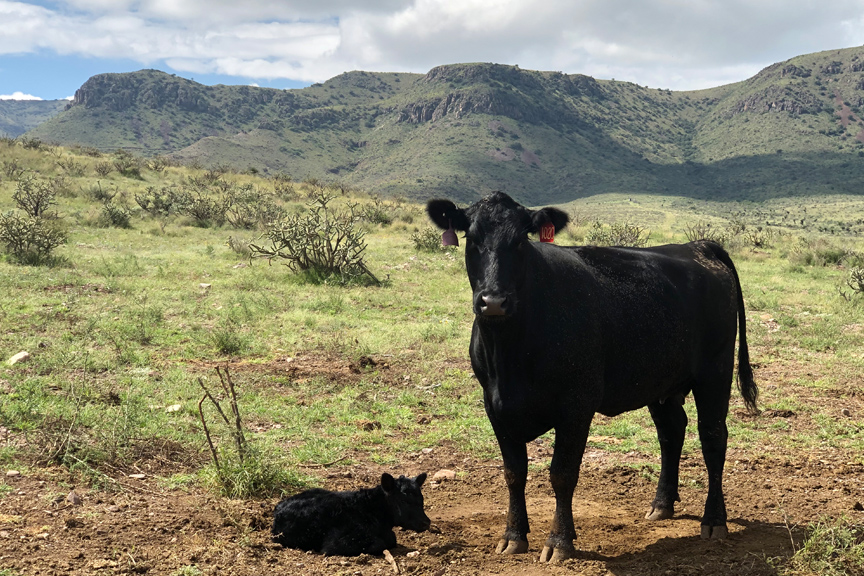
Rotational grazing is being utilized, including an intense pasture system under an irrigation pivot that is used for weaning and preconditioning calves. Previously an alfalfa field, the irrigated pasture has been seeded to a Bermuda grass mix and, “helps the ranch get around drought,” according to Davis.
Davis is tasked with overseeing the ranch financials – and strives to know costs on everything, including each fence post and wire that is stretched. He credits the financial models for a feed program he first developed during his KRIRM internship, among the financial analysis tools he still uses.
“We want to make sure every move is the right one, and the ranch can [generate revenue to] pay for it,” Davis says.
One revenue generator that has been a huge asset to Cibolo Creek Ranch is wildlife hunting of elk, mule deer, Barbary sheep, and blue quail. Davis, who has a dual role as wildlife manager for the ranch, says that the cattle and wildlife on the ranch “co-exist perfectly” because they typically don’t compete for the same type of vegetation. And in regard to quail hunting, Davis believes the cattle have enhanced the quail habitat.
Looking to the future, Davis recognizes Cibolo Creek Ranch’s cattle entity still has many opportunities ahead. He looks forward to continuing to build uniformity within their cowherds and calves and evaluating opportunities to expand. In addition to his manager role at Cibolo Creek Ranch, Davis is assisting Poindexter with establishment of a Black Angus herd at a large ranch property he purchased near New Kent, Virginia, known as Cumberland Plantation.
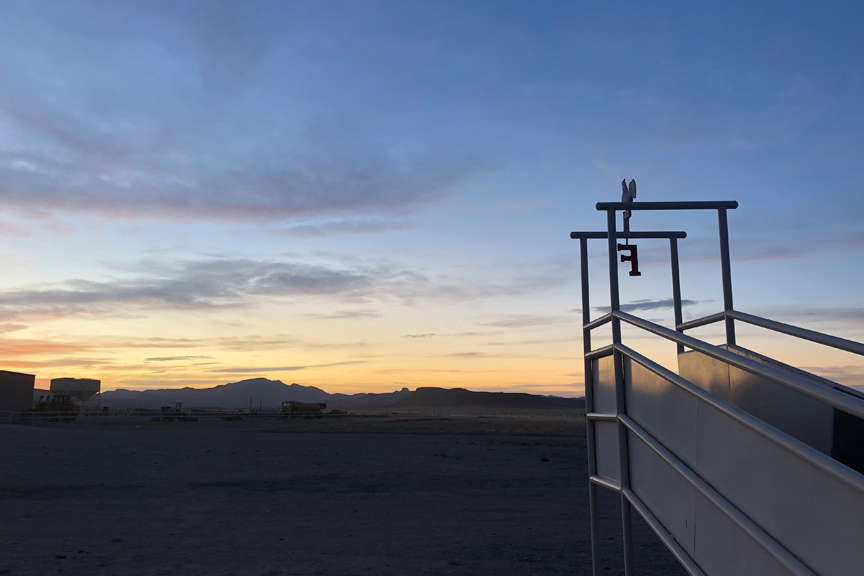
On his own time, Davis also offers financial consulting for ranches in the desert southwest, and enjoys ranch life with his wife Alex and son J. Fred, 4, and daughter Eleanor, 2.
